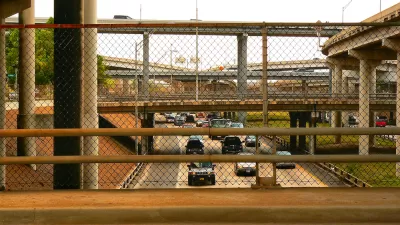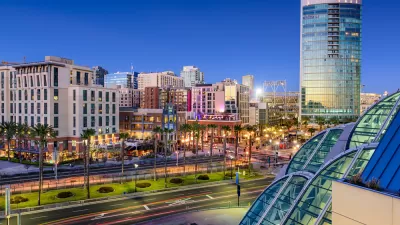Implementing a tax based on miles traveled could disincentivize purchasing more efficient cars and would do little to improve road safety, one columnist argues.

"Americans are increasingly driving hybrid and electric-only cars, reducing emissions and curbing gasoline consumption — accomplishing key goals of the Biden administration," writes Justin B. Hollander. But "[i]mposing a new Vehicle Miles Traveled (VMT) tax," included in the infrastructure bill passed by the Senate last week, "would likely flush away all those prior investments in efficiency and remove much of the incentive for someone to purchase and operate a hybrid or electric-only car."
"Presently, the 18.4 cents (or 24.4 cents for diesel) per gallon gas tax generates over $30 billion annually to help pay for a range of highway, rail and other transit costs," but "critics worry that our increasingly fuel-efficient vehicles, move towards fully electric cars and a decline in overall car use threaten the fiscal future of national transportation funding." In Hollander's view, "the answer for the U.S. DOT is to simply increase the gas tax and get more cars off our roads."
"The gas tax has been shown in numerous research studies to be an effective policy tool that discourages driving and encourages the use of public transit. If the U.S. DOT needs more money, then they ought to seek out congressional support for raising the gas tax — it has not increased since 1993," argues Hollander. "Create a brand new, national-level taxation system based on vehicle miles traveled and you will discourage the use of environmentally friendly cars and do nothing to actually make us safer from the hazards of cars and trucks."
FULL STORY: The Senate's Vehicle Miles Traveled Tax is bad for our health

Planetizen Federal Action Tracker
A weekly monitor of how Trump’s orders and actions are impacting planners and planning in America.

Congressman Proposes Bill to Rename DC Metro “Trump Train”
The Make Autorail Great Again Act would withhold federal funding to the system until the Washington Metropolitan Area Transit Authority (WMATA), rebrands as the Washington Metropolitan Authority for Greater Access (WMAGA).

The Simple Legislative Tool Transforming Vacant Downtowns
In California, Michigan and Georgia, an easy win is bringing dollars — and delight — back to city centers.

The States Losing Rural Delivery Rooms at an Alarming Pace
In some states, as few as 9% of rural hospitals still deliver babies. As a result, rising pre-term births, no adequate pre-term care and "harrowing" close calls are a growing reality.

The Small South Asian Republic Going all in on EVs
Thanks to one simple policy change less than five years ago, 65% of new cars in this Himalayan country are now electric.

DC Backpedals on Bike Lane Protection, Swaps Barriers for Paint
Citing aesthetic concerns, the city is removing the concrete barriers and flexposts that once separated Arizona Avenue cyclists from motor vehicles.
Urban Design for Planners 1: Software Tools
This six-course series explores essential urban design concepts using open source software and equips planners with the tools they need to participate fully in the urban design process.
Planning for Universal Design
Learn the tools for implementing Universal Design in planning regulations.
Smith Gee Studio
City of Charlotte
City of Camden Redevelopment Agency
City of Astoria
Transportation Research & Education Center (TREC) at Portland State University
US High Speed Rail Association
City of Camden Redevelopment Agency
Municipality of Princeton (NJ)





























